As a marketer, I want to know if there are specific things I should do to improve our LLM visibility that I am not currently doing as part of my routine marketing and SEO efforts.
So far, it doesn’t seem like it.
There seems to be massive overlap in SEO and GEO, such that it doesn’t seem useful to consider them distinct processes.
The things that contribute to good visibility in search engines also contribute to good visibility in LLMs. GEO seems to be a byproduct of SEO, something that doesn’t require dedicated or separate effort. If you want to increase your presence in LLM output, hire an SEO.
Sidenote.
GEO is “generative engine optimization”, LLMO is “large language model optimization”, AEO is “answer engine optimization”. Three names for the same idea.
“There’s only so many ways you can shake a stick at aggregating a group of information, ranking it, and then disseminating your best approximation of what the best and most accurate result/info would be.”
Most people agreed with my sentiment, but others shared nuances between LLMs and search engines that are worth understanding—even if they don’t (in my opinion) warrant creating the new discipline of GEO:
LLMs operate differently. They derive their understanding of a brand’s authority from words on the page, from the prevalence of particular words, the co-occurrence of different terms and topics, and the context in which those words are used. Unlinked content will further an LLM’s understanding of your brand in a way that won’t help a search engine.
As Gianluca Fiorelli writes in his excellent article:
“Brand mentions now matter not because they increase ‘authority’ directly but because they strengthen the position of the brand as an entity within the broader semantic network.
When a brand is mentioned across multiple (trusted) sources:
The entity embedding for the brand becomes stronger.
The brand becomes more tightly connected to related entities.
The cosine similarity between the brand and related concepts increases.
The LLM ‘learn’ that this brand is relevant and authoritative within that topic space.”
Many companies already value off-site mentions, albeit with the caveat that those mentions should be linked (and dofollow). Now, I can imagine brands relaxing their definition of a “good” off-site mention, and being happier with unlinked mentions in platforms that pass little traditional search benefit.
As Eli Schwartz puts it,
“In this paradigm, links don’t need to be hyperlinked (LLMs read content) or restricted to traditional websites. Mentions in credible publications or discussions sparked on professional networks (hello, knowledge bases and forums) all enhance visibility within this framework.”
Track brand mentions with Brand Radar
You can use our new tool, Brand Radar, to track your brand’s visibility in AI mentions, starting with AI Overviews.
Enter the topic you want to monitor, your brand (or your competitors’ brands), and see impressions, share of voice, and even specific AI outputs mentioning your brand:
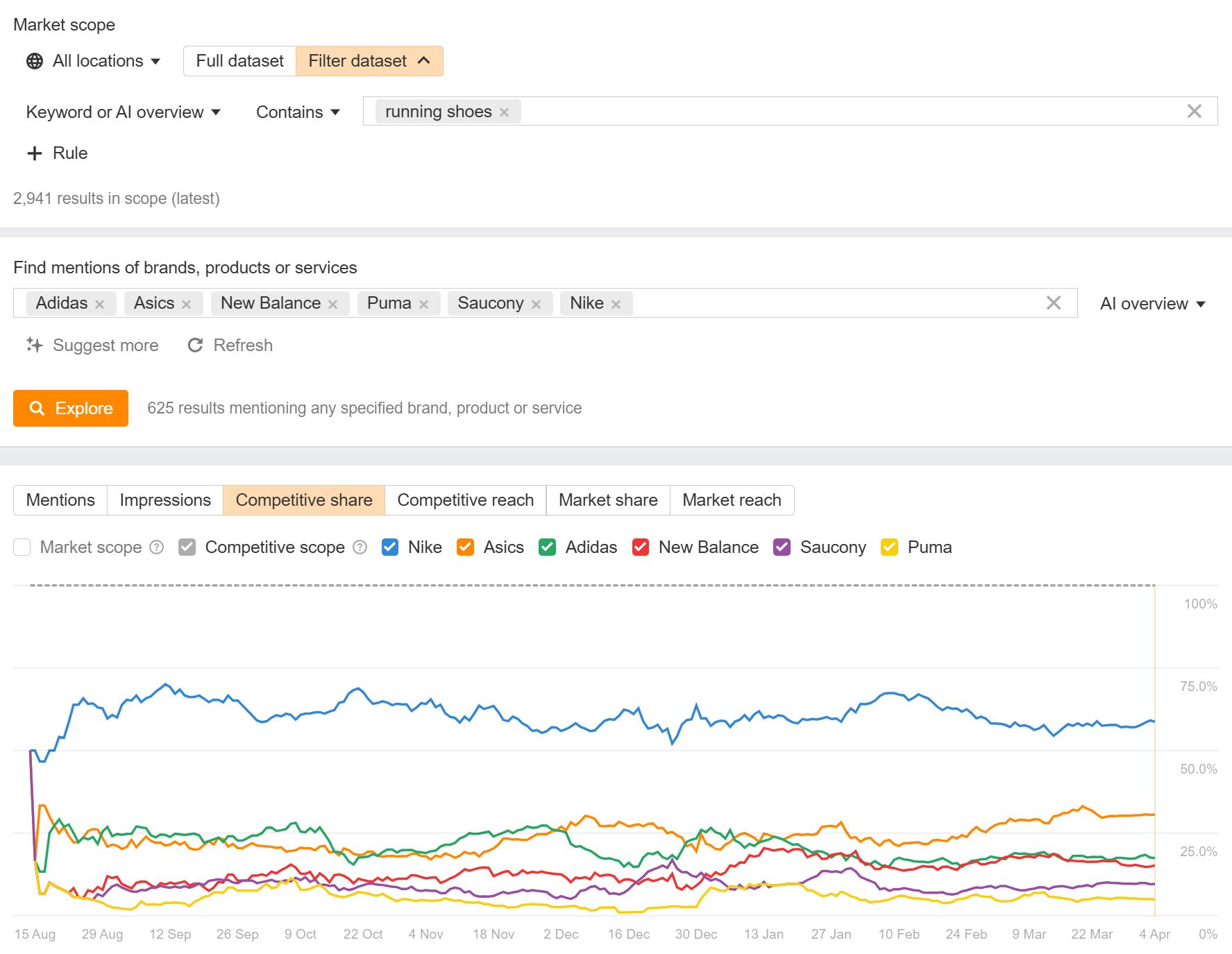
These tactics offer enough SEO benefit that many people still deem them worthwhile, but they will offer even less benefit for LLM visibility. Without any relevant context surrounding these links or articles, they will do nothing to further an LLM’s understanding of the brand or boost the likelihood of it appearing in outputs.
“It’s 2025 and most content is still written for humans instead of LLMs. 99.9% of attention is about to be LLM attention, not human attention.
E.g. 99% of libraries still have docs that basically render to some pretty .html static pages assuming a human will click through them. In 2025 the docs should be a single your_project.md text file that is intended to go into the context window of an LLM.
Repeat for everything.”
This is an inversion of the SEO adage that we should write for humans, not robots: there may be a benefit to focusing our energy on making information accessible to robots, and relying on the LLMs to render the information into more accessible forms for users.
In this way, there are specific information structures that can help LLMs correctly understand the information we provide.
For example, Snowflake refers to the idea of “global document context”. (H/T to Victor Pan from HubSpot for sharing this article.)
LLMs work by breaking text into “chunks”; by adding extra information about the document throughout the text (like company name and filing date for financial text), it’s easier for the LLM to understand and correctly interpret each isolated chunk, “boosting QA accuracy from around 50%-60% to the 72%-75% range.”
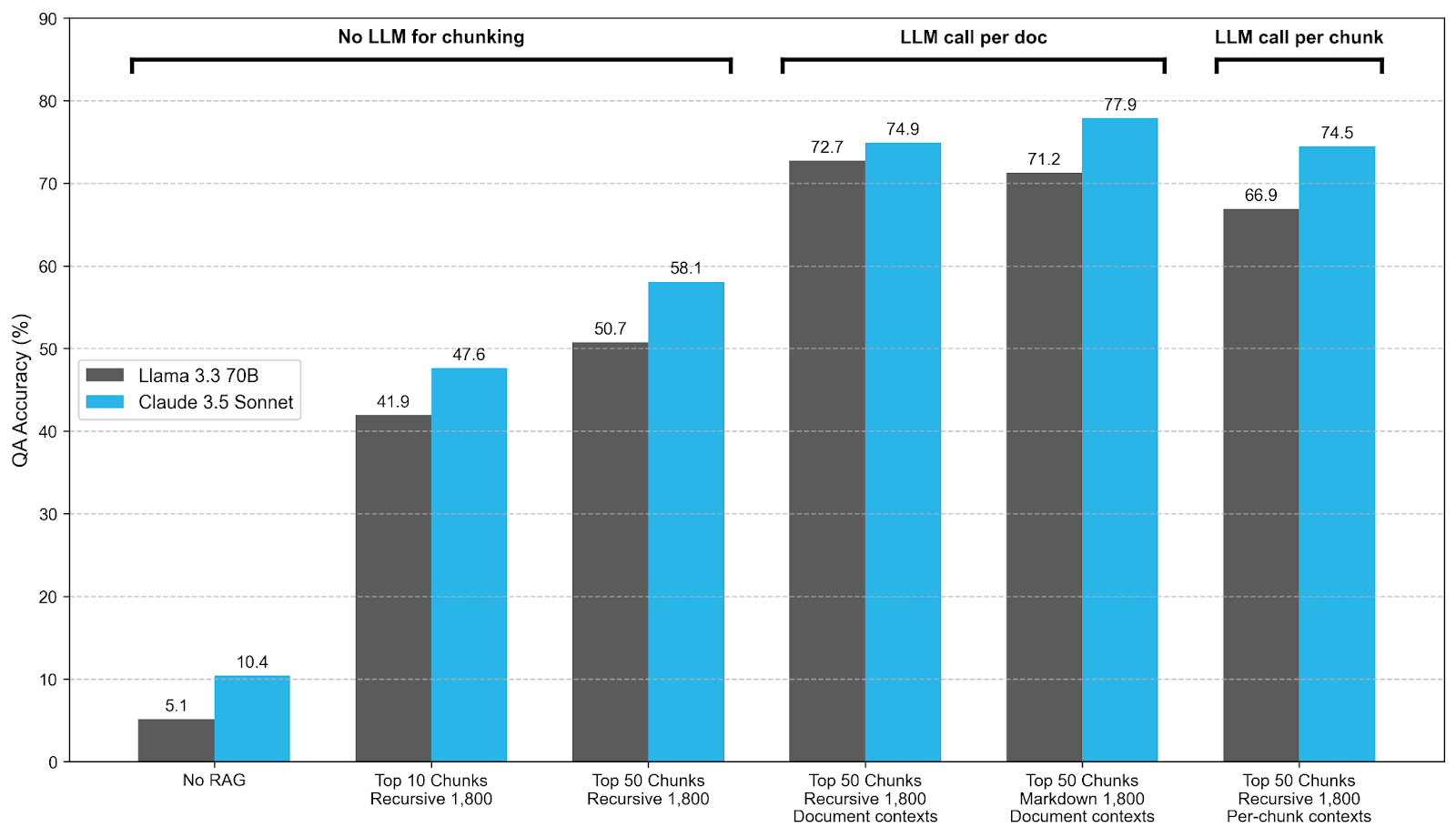
Understanding how LLMs process text offers small ways for brands to improve the likelihood that LLMs will interpret their content correctly.
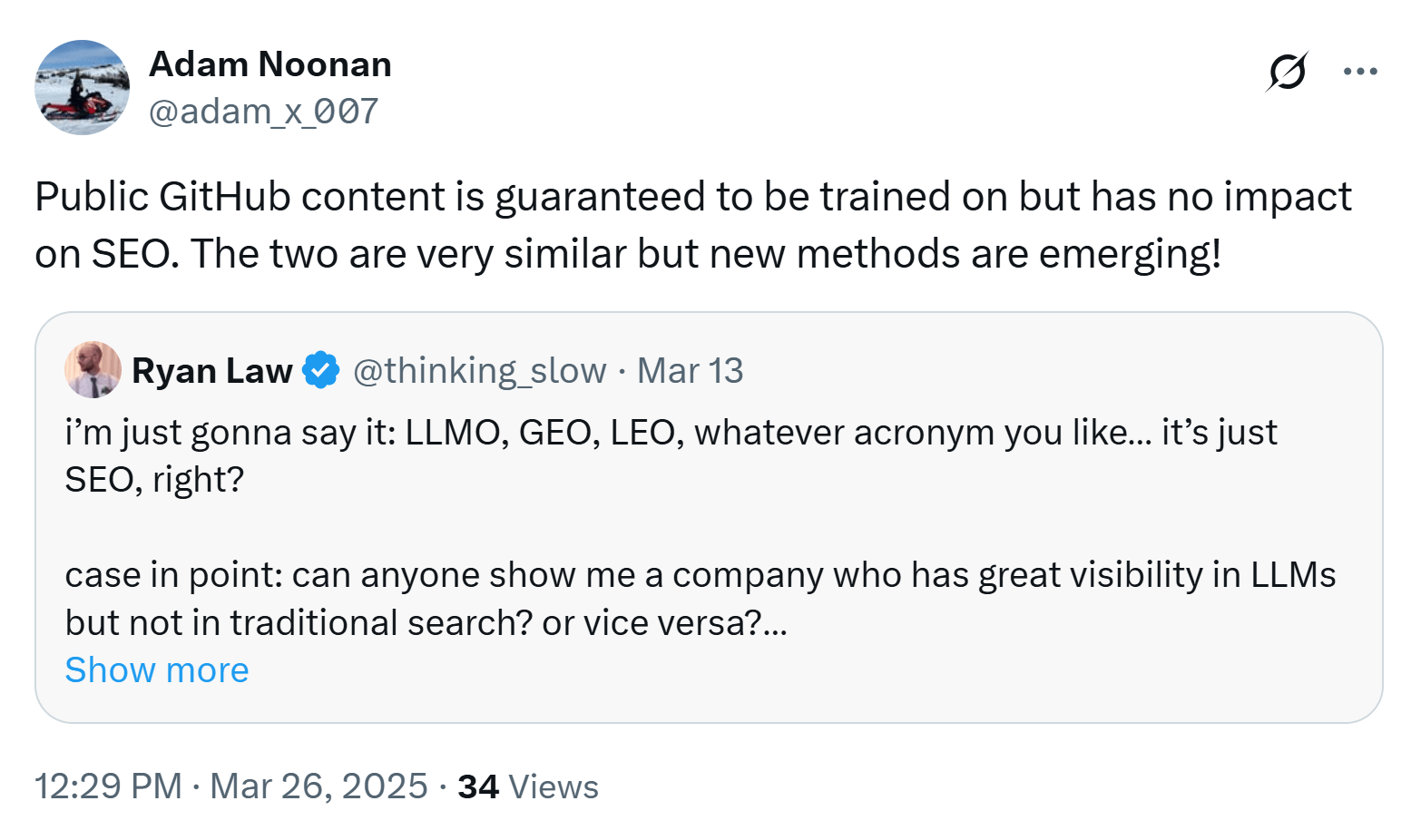
Coding is arguably the most successful use case for LLMs, and developers must make up a sizeable portion of total LLM users.
For some companies, especially those selling to developers, there may be a benefit to “optimizing” the content these developers are most likely to interact with—knowledgebases, public repos, and code samples—by including extra context about your brand or products.
“Most AI crawlers do not render JavaScript. There’s no renderer. Popular AI crawlers like those used by OpenAI and Anthropic do not even execute JavaScript. That means they won’t see content that is rendered client-side through JavaScript.”
This is more of a footnote than a major difference, for the simple reason that I don’t think this will remain true for very long. This problem was solved by many non-AI web crawlers, and will be solved by AI web crawlers in short order.
But for now, if you rely heavily on JavaScript rendering, a good portion of your website’s content may be invisible to LLMs.
Final thoughts
But here’s the thing: managing indexing and crawling, structuring content in machine-legible ways, building off-page mentions… these all feel like the classic remit of SEO.
And these unique differences don’t seem to have manifested in radical differences between most brands’ search visibility and LLM visibility: generally speaking, brands that do well in one also do well in the other.
Even if GEO does eventually evolve to require new tactics, SEOs—people who spend their careers reconciling the needs of machines and real people—are the people best-placed to adopt them.
So for now, GEO, LLMO, AEO… it’s all just SEO.
Further reading
Similar Posts
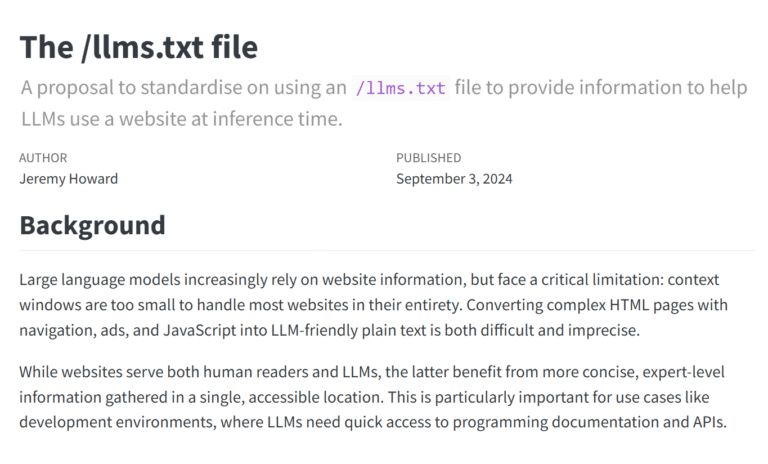
What Is llms.txt, and Should You Care About It?
Developers and marketers are being told to add llms.txt files to their sites to help large language models (LLMs) “understand” their content. But what exactly is llms.txt, who’s using it, and—more importantly—should you care? llmstext.org. In a nutshell, it’s a text file designed to tell LLMs where to find the good stuff: API documentation, return policies,…
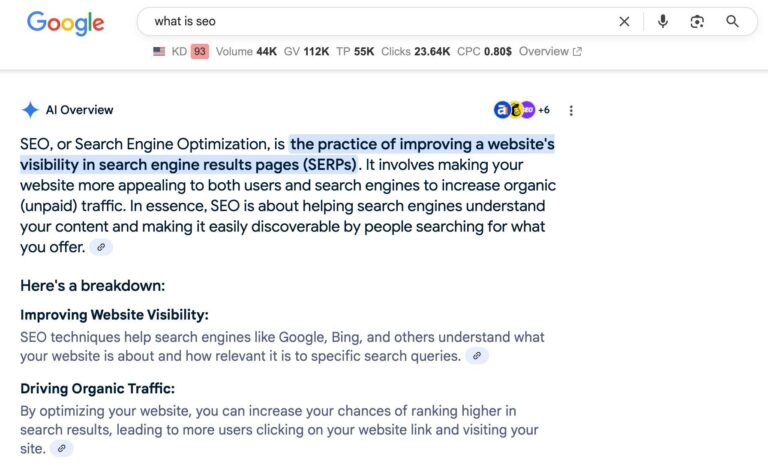
Generative Engine Optimization: Growth Strategies and Metrics For the AI Era
GEO, short for Generative Engine Optimization (also known as AEO or LLMO), is about getting your brand noticed—and accurately represented—in AI-generated answers. That includes results from Google’s AI Overviews, and AI assistants like ChatGPT, and Gemini. The goal is to make sure your brand shows up when AI tools answer user questions, even if no…
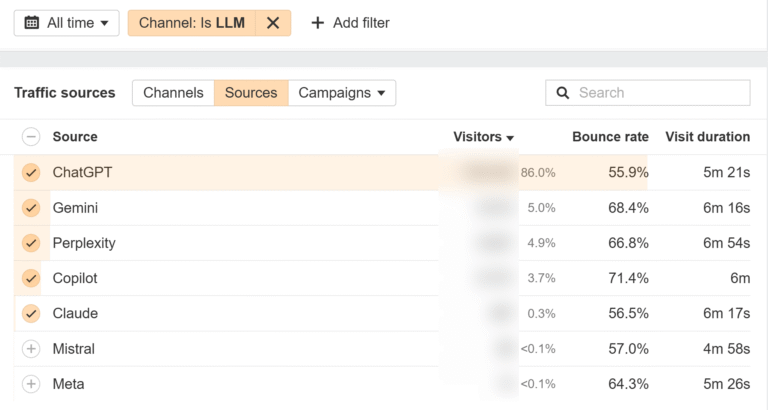
Generative Engines Are Breaking Web Analytics and Hurting Their Future
Search is moving from traditional search engines to generative engines, but traffic from many of these sites isn’t being tracked properly in analytics. It’s their fault, not yours. I was looking at our LLM filter in Ahrefs Web Analytics and noticed some common generative engines missing from the list. They’re in our filters, but we aren’t…
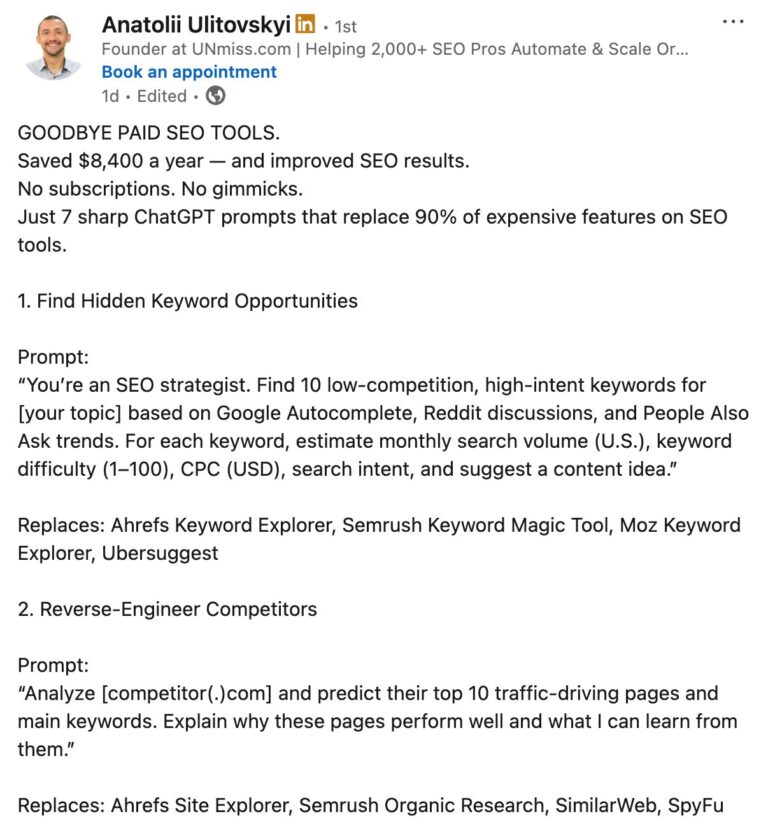
AI Can’t Replace SEO Tools. But It Can Use Them
Recently, a LinkedIn post claimed that you could replace paid SEO tools with just a handful of ChatGPT prompts and save $8,400 annually. The post exploded. 500+ likes, 400+ comments, and people are loving it. But SEOs didn’t. I can’t believe we’re still talking about this at the end of 2025. I want to believe…
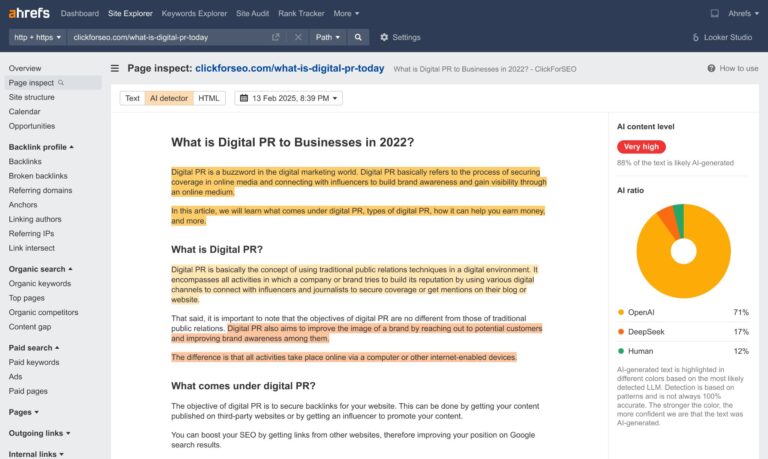
74% of New Webpages Include AI Content (Study of 900k Pages)
We analyzed 900,000 newly created web pages in April 2025 and found that 74.2% of them contained AI-generated content. At Ahrefs, our machine learning team has built an AI content detector (codenamed bot_or_not). We’re about to release the AI content detector for Ahrefs customers to use, so we decided to put it through its paces…
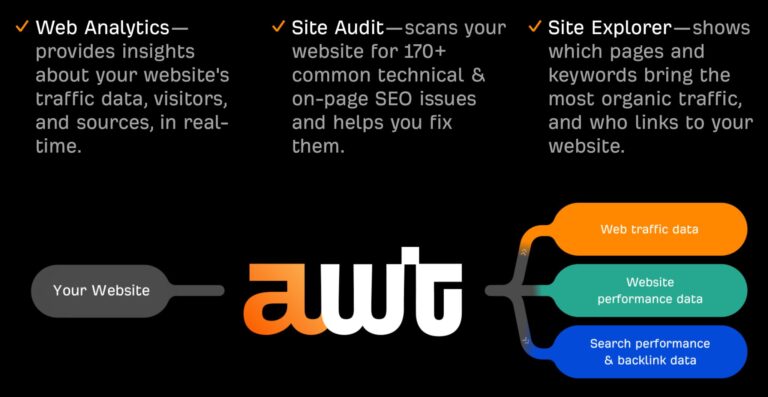
How to Track Website Metrics With One Free, Privacy-Friendly Tool
There are plenty of website metrics out there, and just as many tools to track them. So, to clear up the confusion, I’ll show you the key metrics that really matter, explain how to make sense of them, and show you how to do it all with one free, privacy-friendly tool that’s ready for the AI age….





